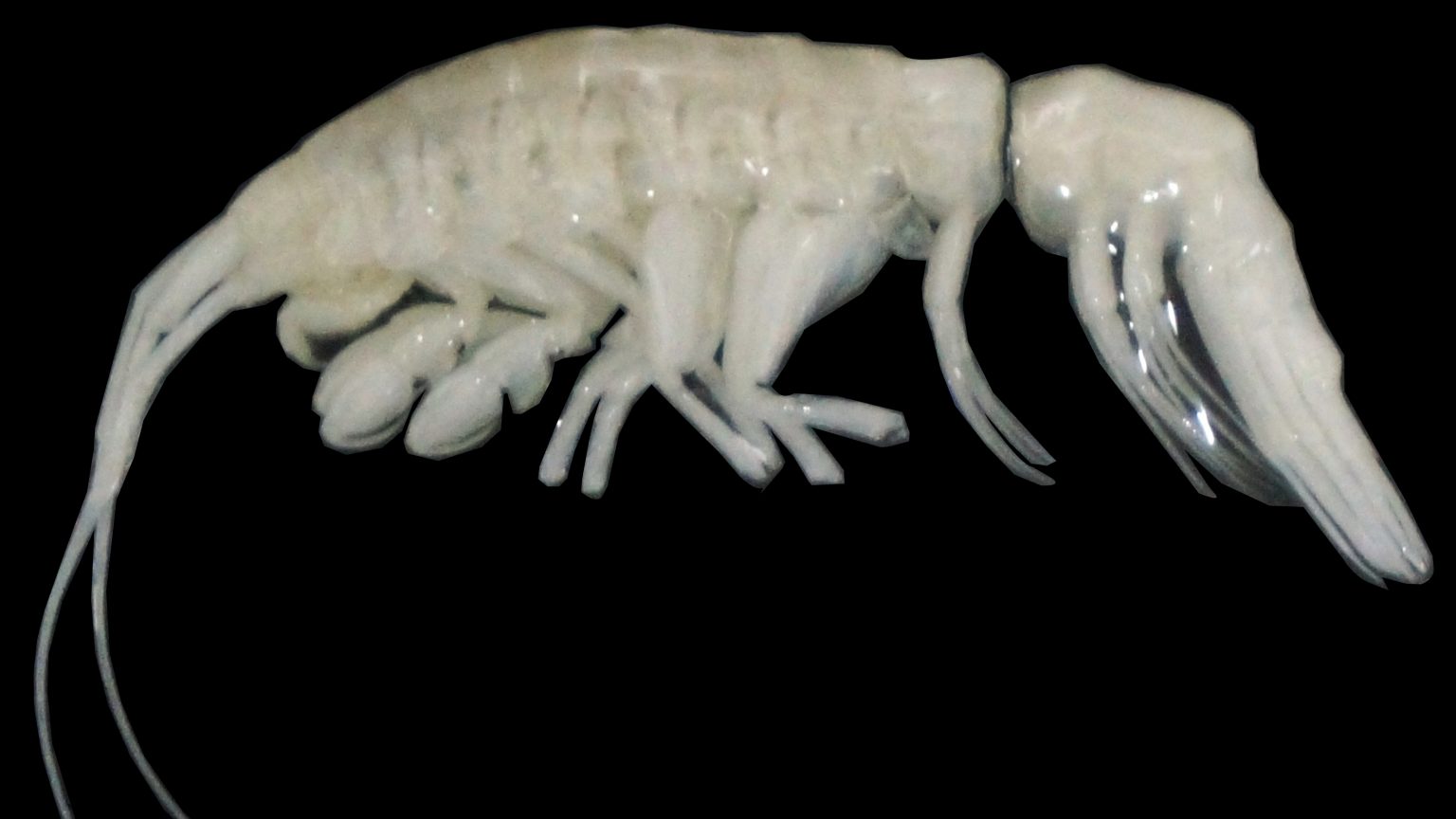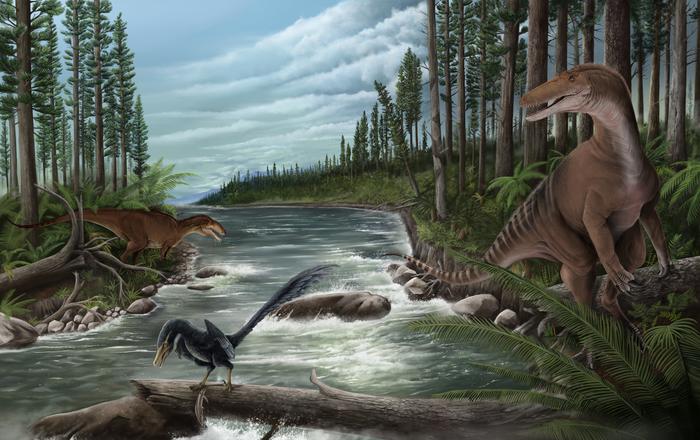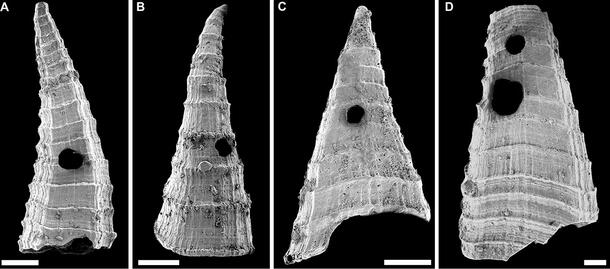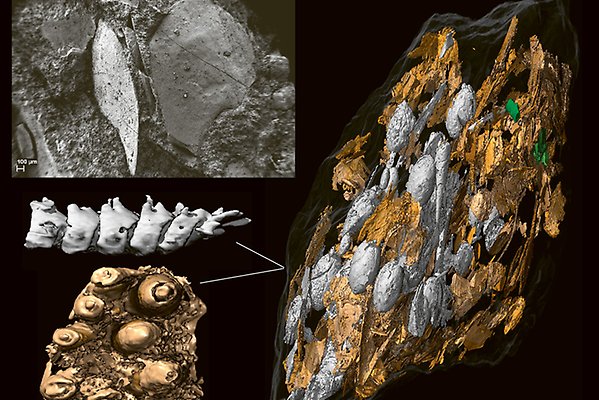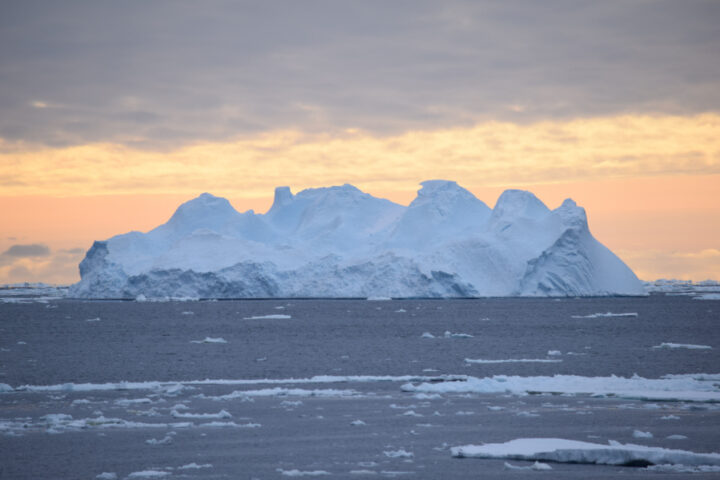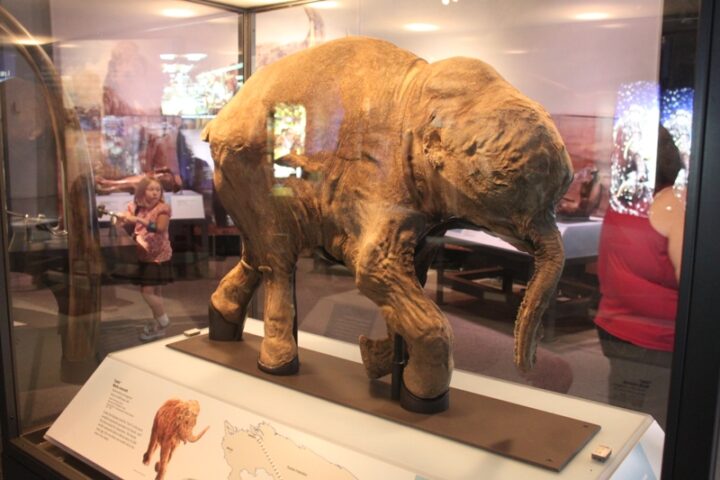A team of marine biologists has discovered a new predatory amphipod species at nearly 8,000 meters below the Pacific Ocean’s surface, marking a crucial addition to our understanding of deep-sea biodiversity. The creature, named Dulcibella camanchaca, was found in Chile’s Atacama Trench during the 2023 Integrated Deep-Ocean Observing System (IDOOS) Expedition.
The pale, ghostly crustacean measures 4 centimeters in length and possesses specialized raptorial appendages for hunting prey in complete darkness. “Dulcibella camanchaca is a fast-swimming predator that we named after ‘darkness’ in the languages of the peoples from the Andes region to signify the deep, dark ocean from where it predates,” explains Dr. Johanna Weston, hadal ecologist at Woods Hole Oceanographic Institution and co-author of the study.
Unlike most amphipods at such depths that typically scavenge for food, this species actively hunts smaller crustaceans. The discovery location, at precisely 7,902 meters depth (23°55′S, 71°27′W), experiences near-freezing temperatures and pressure up to 1,100 times that at sea level.
Carolina González from the Instituto Milenio de Oceanografía, who analyzed the species’ DNA, states: “This finding underlines the importance of continued deep-ocean exploration, particularly in Chile’s front yard. More discoveries are expected as we continue to study the Atacama Trench.”
The research team retrieved four specimens using specialized lander equipment. Genetic analysis confirmed both a new species and genus classification, expanding the taxonomic diversity of hadal zone organisms. The findings appear in the journal Systematics and Biodiversity.
Similar Posts
The Atacama Trench, extending along Peru and Chile’s coastline to depths of 8,065 meters, remains largely unexplored. This isolation has created unique ecosystems where species develop distinct adaptations for survival in extreme conditions.
Deep-sea industrial activities and tank-like equipment operations across the seafloor pose challenges for these remote ecosystems. The National Oceanic and Atmospheric Administration reports that marine invertebrates produce more antibiotic, anti-cancer, and anti-inflammatory substances than terrestrial organisms, emphasizing the scientific value of preserving these environments.NASA has funded multiple deep-sea exploration projects, collaborating with marine biologists and oceanographers to probe Earth’s core. This collaboration between marine scientists demonstrates the broader implications of deep-sea research for understanding life in extreme conditions.
